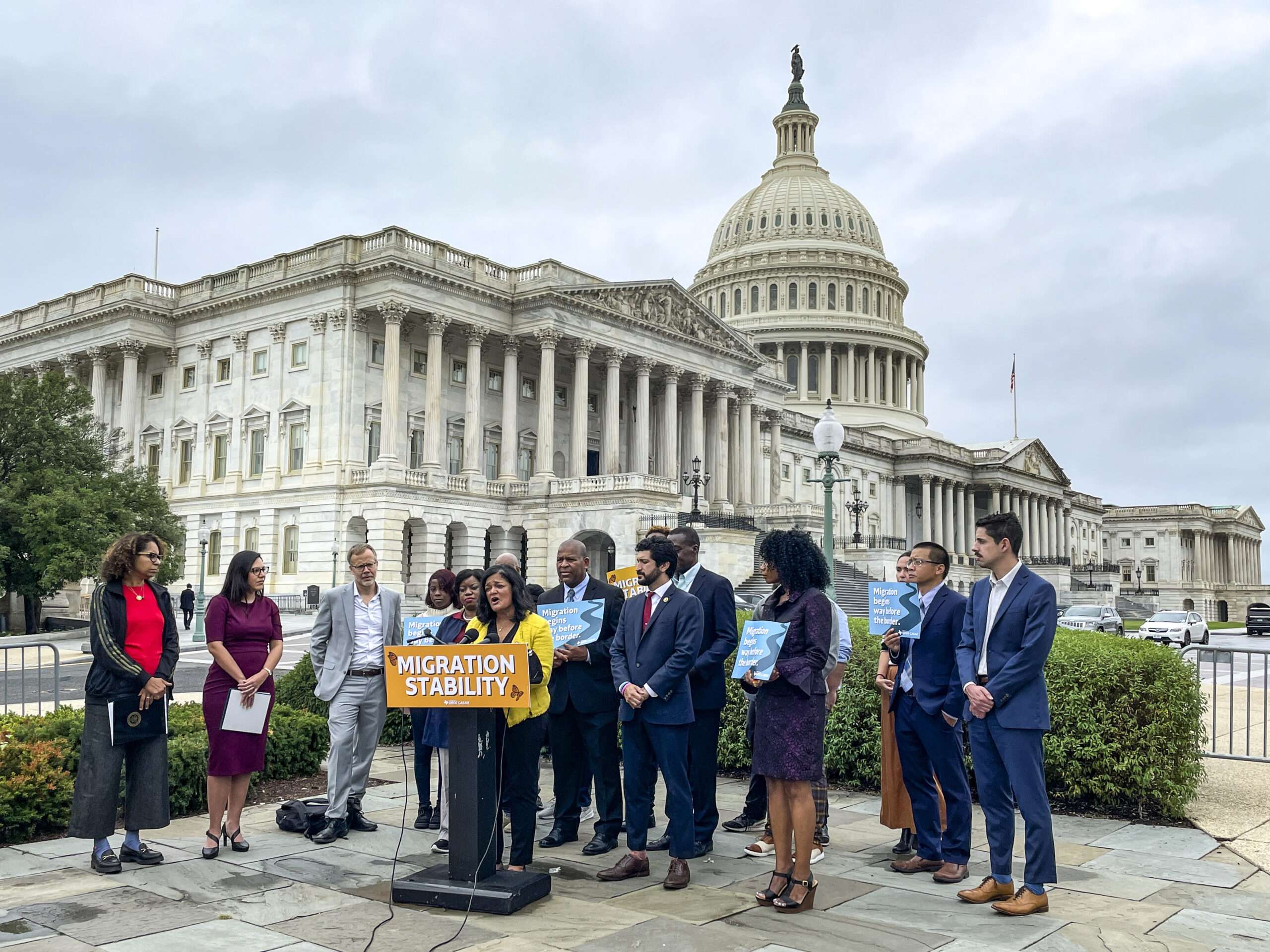Democrats May Soon Recognize the Importance of the Filibuster Again
Three years ago, Rep. Pramila Jayapal (D-Wash.) collaborated with nearly 100 other House Democrats in urging Senate Democrats to take significant action against a procedural impediment they believed was obstructing progress: the filibuster. This rule requires 60 votes to pass most legislation, creating a high threshold for advancing bills, a reality that Jayapal and her fellow lawmakers argued was detrimental to achieving justice and equity in the nation. They contended that the filibuster hindered crucial legislative efforts necessary to meet the demands of their constituents. Yet, in the wake of recent elections, it seems that Senate Democrats’ reluctance to eliminate the filibuster may have been wise. As the political landscape shifts, with the Republicans poised to gain significant control, Jayapal’s current position on the filibuster reflects a convenient and somewhat opportunistic view—she would only champion its abolition had Democrats retained majority control.
This dynamic reveals a concerning trend within both major political parties: a tendency to dismiss processes that may restrict majority power as undesirable obstacles. Many lawmakers view procedural checks, such as the filibuster, as hindrances rather than essential safeguards against the potential overreach of majority rule. This shift in attitude can lead to dangerous implications, as it indicates a broader inclination toward undermining institutional norms to expedite legislative agendas. Notably, moderates like Senators Joe Manchin (D-W.Va.) and Kyrsten Sinema (D-Ariz.), who previously advocated for preserving the filibuster, may depart from Congress, raising crucial questions about who will advocate for such restraints on power in the future. The dismantlement of filibuster protections is worrisome; it sets a precedent that may ultimately make it easier to pass not only progressive policies but also more controversial or detrimental legislation.
The argument for abolishing the filibuster hinges on the belief that it would facilitate the passing of “good” laws, yet such a perspective is inherently flawed. The reality is that removing the filibuster would equally simplify the passage of “bad” laws, regardless of one’s political ideology. This binary perception of legislation overlooks the complexities of governance and the necessity of balancing competing interests to maintain a functional democracy. Furthermore, the permanent nature of eliminating the filibuster is often misunderstood—once it is abolished, it cannot be easily reinstated for just one particular legislative agenda. Calls from various Democrats to abandon the filibuster in light of specific issues, like abortion rights or Supreme Court restructuring, are naïve, as they fail to consider the implications of such a permanent rule change.
Historical precedents offer insight into the repercussions of eliminating the filibuster. For instance, in 2013, under the leadership of then-Senate Majority Leader Harry Reid, Democrats abolished the filibuster for lower-court judicial nominations to expedite confirmations of President Barack Obama’s appointees. This strategic move backfired spectacularly when the Republican Party, empowered in subsequent elections, utilized the same tactic to confirm a massive number of judges under President Donald Trump, effectively reshaping the judicial landscape in favor of conservatism. This example underscores a critical lesson: history shows that abolishing the filibuster often leads to an escalation of partisan conflicts, leaving the party that initiated the change at a significant disadvantage when the political tides inevitably turn.
The structural advantages inherent in the Senate, which often favor Republicans, complicate the rationale for Democrats wishing to eradicate the filibuster. Given that the Senate inherently provides disproportionate representation to smaller states—many of which lean Republican—abolishing a protective measure like the filibuster could lead to disastrous ramifications for the Democratic Party. It is vital for Democrats to consider the long game, as elections can shift swiftly, and the current majority status will not be permanent. Leaders should reflect on how to retain institutional protections rather than dismantle them in pursuit of short-term gains.
Ultimately, the debate around the filibuster exemplifies a broader struggle between maintaining democratic norms and succumbing to momentary political expedience. As lawmakers navigate this contentious landscape, they must ponder what governance should entail: ensuring a system that can adapt and respond to the populace while safeguarding minority rights. Although the pressures to abandon mechanisms like the filibuster are increasingly mounting, doing so without consideration of the long-term consequences may lead to an erosion of democratic values and stability in American governance. The dilemma posed by the filibuster is not simply one of legislative strategy but is emblematic of a fundamental challenge facing contemporary politics: how to balance the urgency of action with the imperative of institutional responsibility.
Share this content:












Post Comment